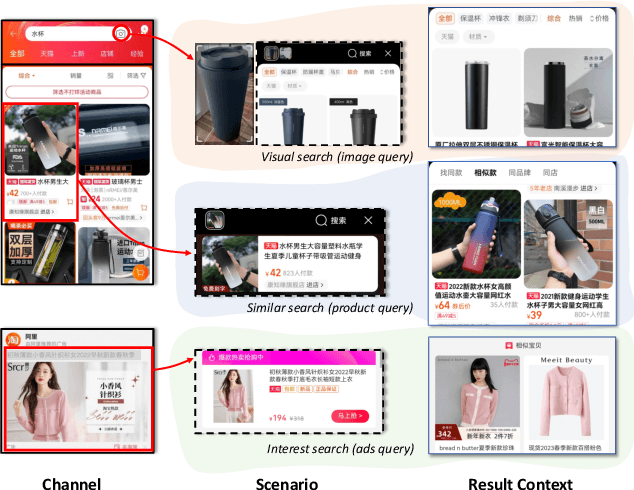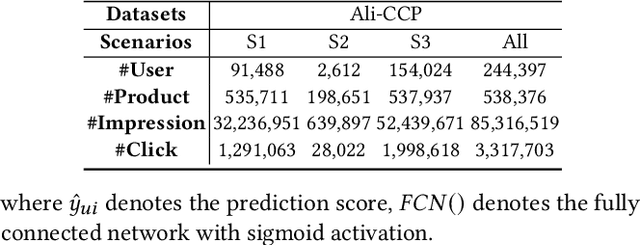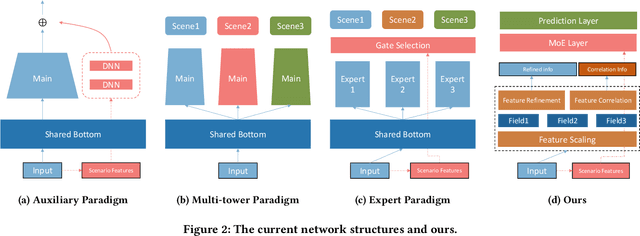Multi-Scenario Ranking with Adaptive Feature Learning
Paper and Code
Jun 29, 2023



Recently, Multi-Scenario Learning (MSL) is widely used in recommendation and retrieval systems in the industry because it facilitates transfer learning from different scenarios, mitigating data sparsity and reducing maintenance cost. These efforts produce different MSL paradigms by searching more optimal network structure, such as Auxiliary Network, Expert Network, and Multi-Tower Network. It is intuitive that different scenarios could hold their specific characteristics, activating the user's intents quite differently. In other words, different kinds of auxiliary features would bear varying importance under different scenarios. With more discriminative feature representations refined in a scenario-aware manner, better ranking performance could be easily obtained without expensive search for the optimal network structure. Unfortunately, this simple idea is mainly overlooked but much desired in real-world systems.Further analysis also validates the rationality of adaptive feature learning under a multi-scenario scheme. Moreover, our A/B test results on the Alibaba search advertising platform also demonstrate that Maria is superior in production environments.
 Add to Chrome
Add to Chrome Add to Firefox
Add to Firefox Add to Edge
Add to Edge